|
9th February 2020 It's a Sunday and we're at 'The Sovereigns' in Woking. There's no 50 Fathoms this week as 3 players are absent. Instead we are playing 'Puerto Rico'. William Shakespeare wrote: All the world's a stage, and all the men and women merely players: they have their exits and their entrances; and one man in his time plays many parts, his acts being seven ages. Well if you happen to play a plantation owner in Puerto Rico, you will play 7 roles, I dunno about 7 acts though. What's in a game?
The quality of the components is mostly quite good. What artwork there is in the game is OK, but it's not particularly memorable or interesting. How's it play? As always, we begin with setup. It looks quite long, but it's actually straightforward.
In Puerto Rico there are 2 ways to earn victory points; by shipping goods out and buying buildings. Each round, in turn order, each player will assume 1 of the 7 roles and carry out the action associated with that role. When a player chooses a role, all players can the also carry out that action, but the player who chose the role can do it's bonus action instead. When players chose a role, they take the relevant role card from the display. The roles are:
Players return their role cards and the next player in turn becomes the new first player and a new round begins. There remains one last thing to discuss - what function do buildings serve. Firstly, they earn player points. Some buildings are necessary to process goods. Other buildings confer bonuses when trading and shipping or allow players to 'break the rules' in some way or other. Finally, the 5 large buildings give extra victory points according to the conditions on each individual large building tile. Endgame There are 3 manners in which the endgame can be triggered.
Players then tally their scores, highest value wins. Overall
Puerto Rico is not a complicated game, but it is a fairly involved one and the rules are fairly detailed. The game has minimal 'downtime' as it allows players to act in other player's turns. This keeps players on their toes, being able to take advantage of another player's role is key to optimising strategy. It's also a game of very little luck. The only random element is drawing the plantation tiles, everything else is down to player actions and choices. Talking of choices, the game mostly provides players with useful and meaningful decisions to make. There's always the balancing act caused by there being one too many actions that players will want to do, pushing them into making tricky choices. The trading and shipping rules give Puerto Rico a little bit of a competitive edge. Players need to watch what each other are doing, because as mentioned above, a decision that the active player makes can aid another player. Since the trading tile and ship tiles are not emptied until full and even then only at the end of their respective actions. Players can screw each other (And themselves to be fair.) by initiating trading or shipping at particular times, this can and probably will deny certain players the benefits of trading or shipping. After all there are 5 types of good, but only 4 spaces on the trading tile and 3 ships. Since the game has 2 ways of scoring points. There are broadly speaking, 2 strategies for winning. These are; accumulate victory points by shopping goods out, or buy buildings and accumulate victory points that way. In the few times, we've played it recently, it seems to be that acquiring buildings might be a better way of accumulating victory points. Perhaps the trading approach has a harder learning curve? This is about the only negative I can think about the game. But other than this, Puerto Rico is a game that rewards thoughtful play and that's always a good thing.
0 Comments
Leave a Reply. |
AuthorI play, I paint. Archives
March 2024
Categories
All
|

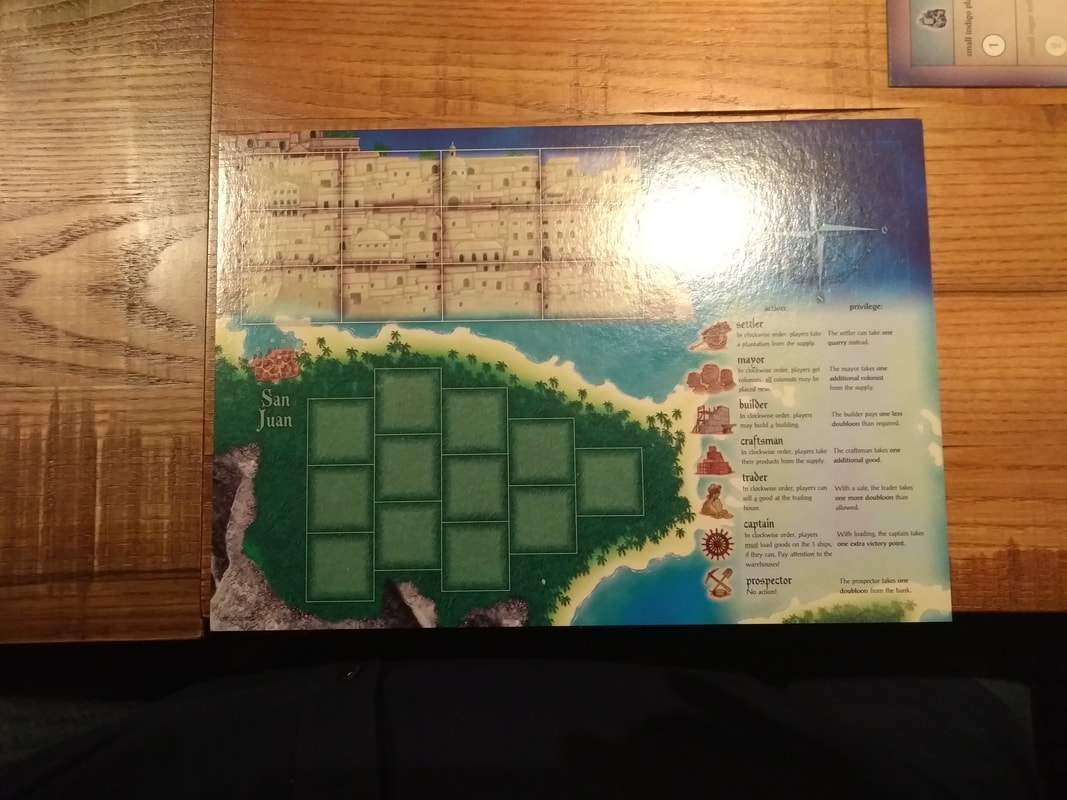
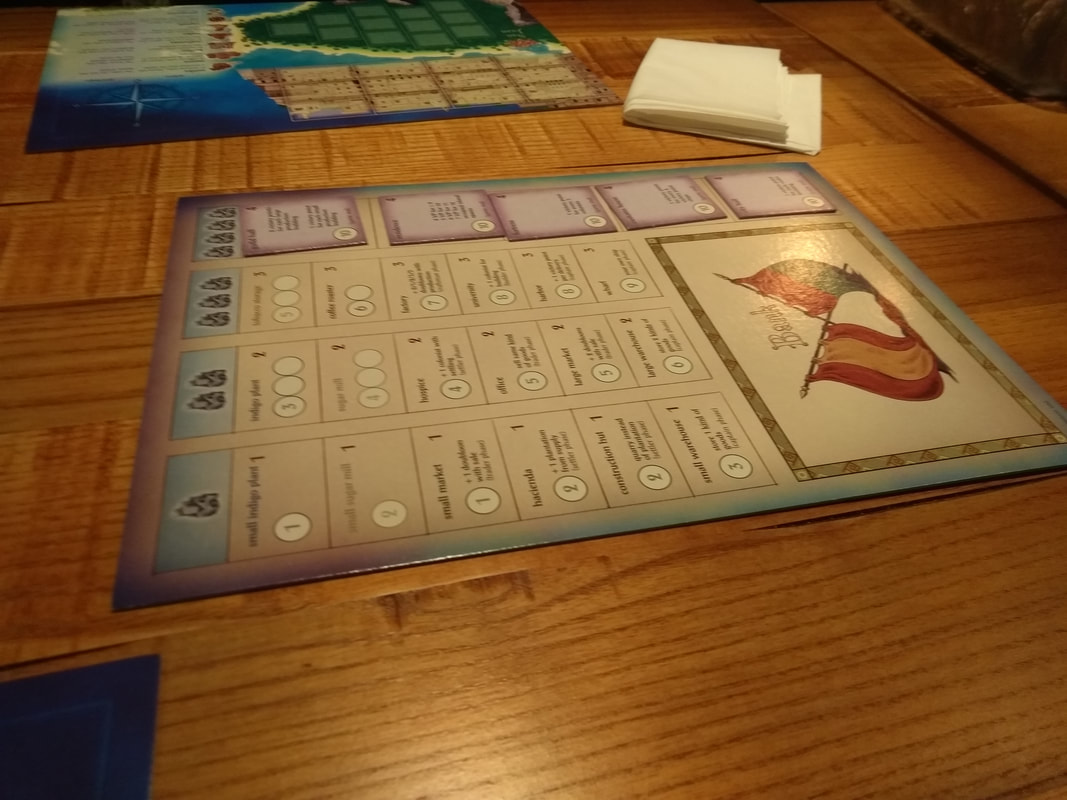
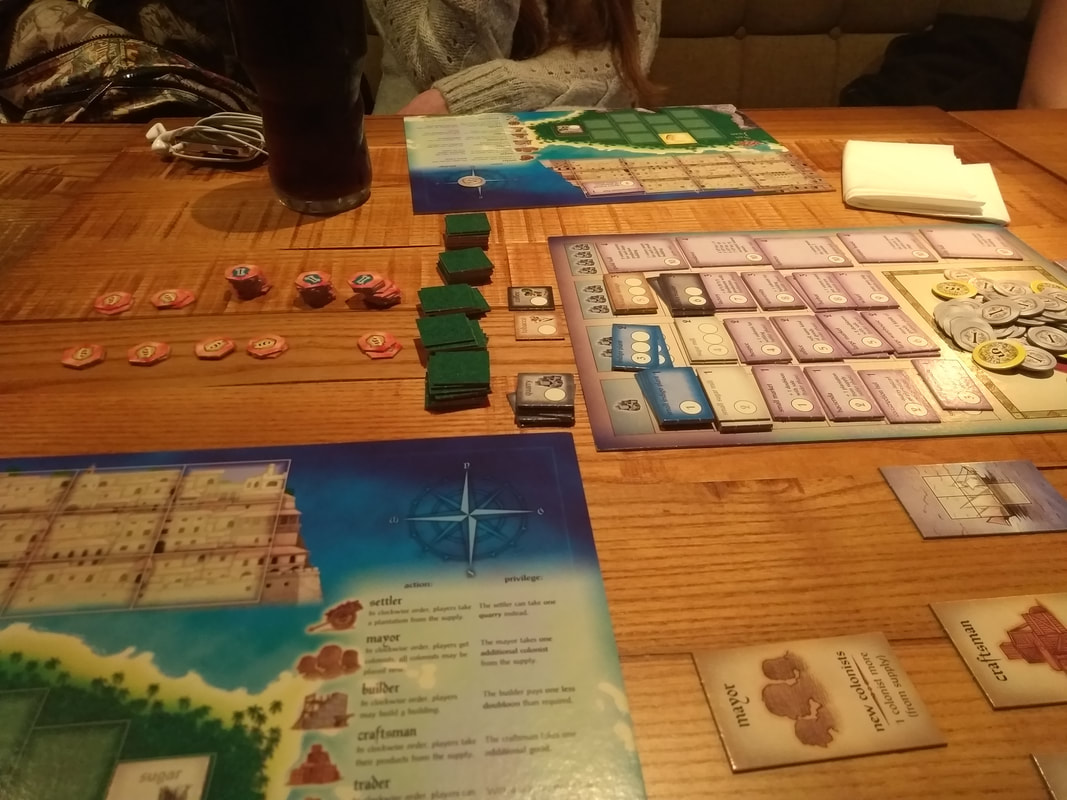
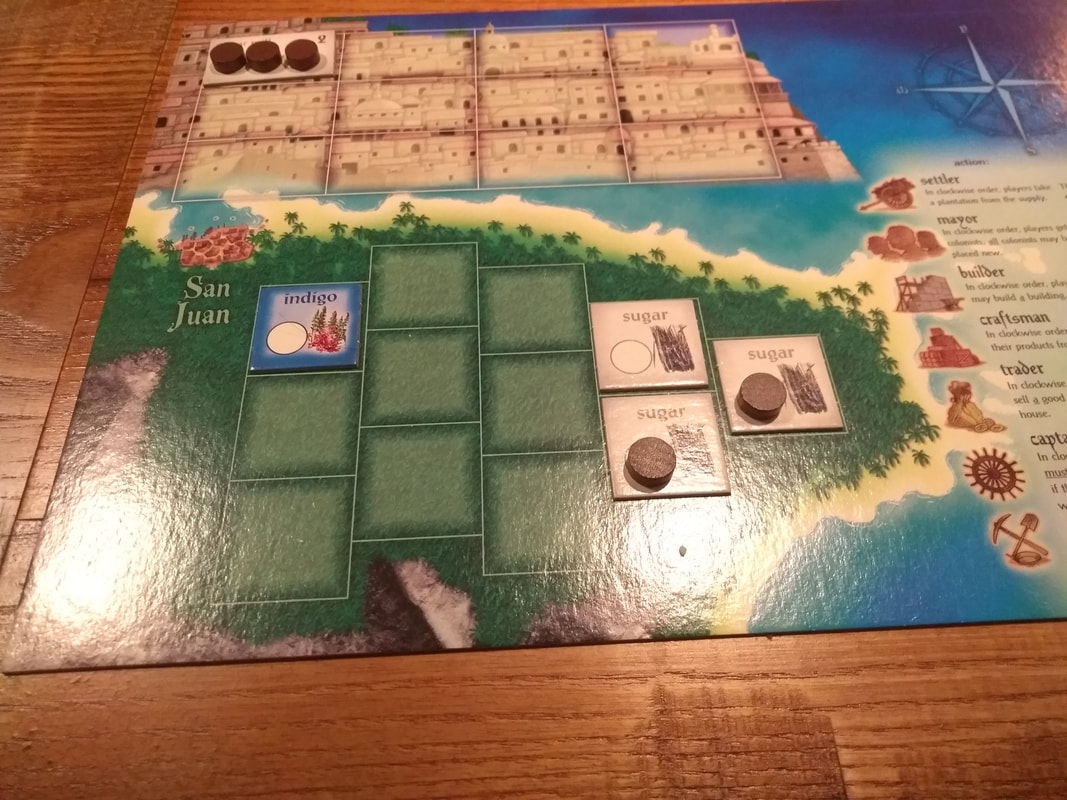
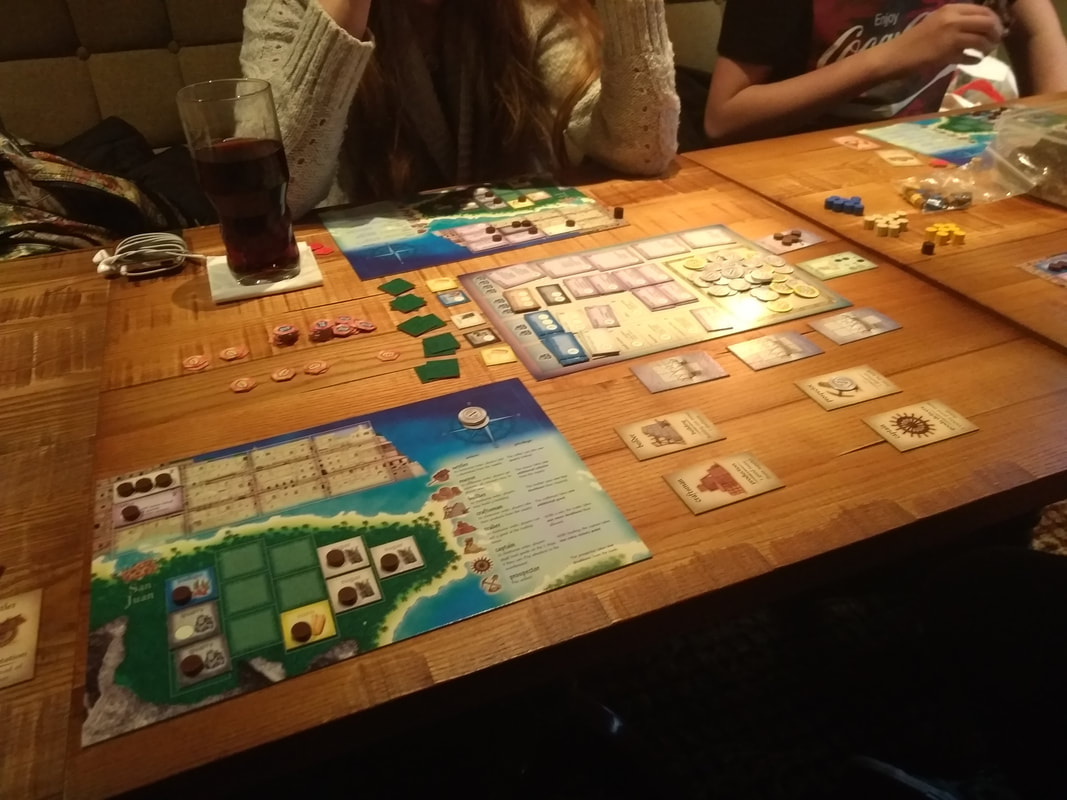
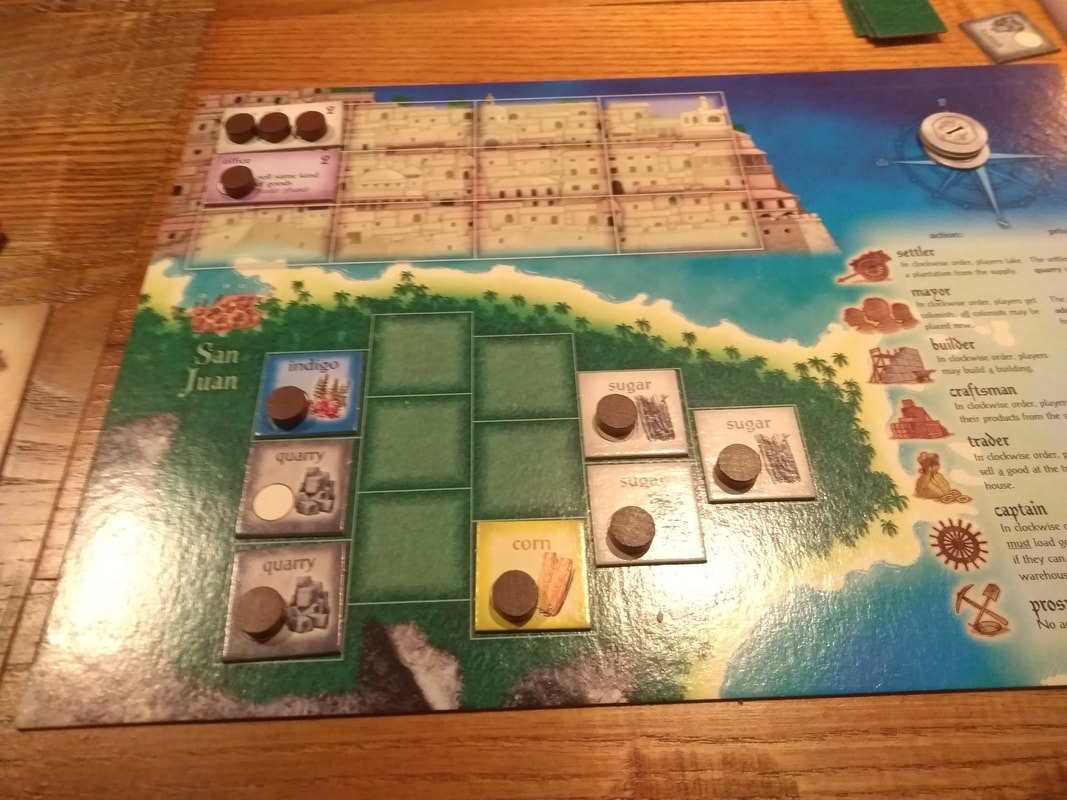
 RSS Feed
RSS Feed
